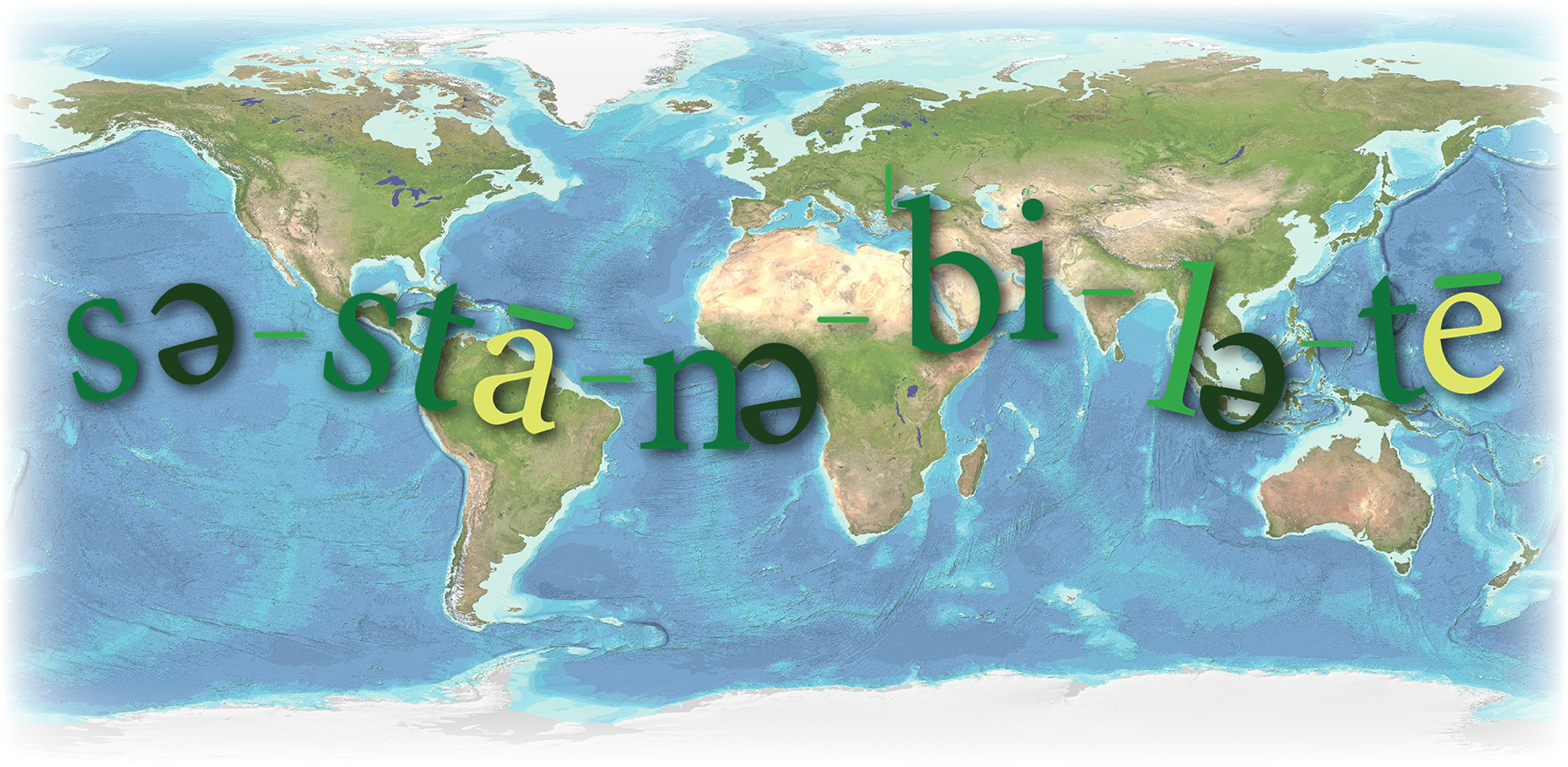Why Sustainability?
You may have heard, “there is no planet B.” Sustainability is a global and very local issue in which every person whether actively or passively, plays a part. The steering committee selected sustainability for its timeliness and because it impacts everyone. The topic is multifaceted and complex and the more that is understood about sustainability, the better equipped society is to make decisions as individuals and as a community.
What is Sustainability?
 As defined by Merriam-Webster, sustainability is “1: capable of being sustained,”
and 2a: “of, or relating to, or being a method of harvesting or using a resource so
that the resource is not depleted or permanently damaged,” and 2b: “of or relating
to a lifestyle involving the use of sustainable methods”
As defined by Merriam-Webster, sustainability is “1: capable of being sustained,”
and 2a: “of, or relating to, or being a method of harvesting or using a resource so
that the resource is not depleted or permanently damaged,” and 2b: “of or relating
to a lifestyle involving the use of sustainable methods”
According to the United States Environmental Protection Agency (EPA), “Sustainability is based on a simple principle: Everything that we need for our survival and well-being depends, either directly or indirectly, on our natural environment. To pursue sustainability is to create and maintain the conditions under which humans and nature can exist in productive harmony to support present and future generations.”
In the context of this big, broad statement, consider how food is grown and produced,
how homes and businesses are designed and built, how energy is produced and consumed,
the impacts of land/sea/air transportation, how air and water are managed, and what
impacts manufacturing and industry have on the environment. Sustainability touches
every aspect of our lives. Get engaged in the 365 Days of Learning & Service opportunities
to learn more, and access the resources offered below to begin the journey of a greater
understanding of sustainability.
Resources
Explore the information and resources available on the KSU pages below:














